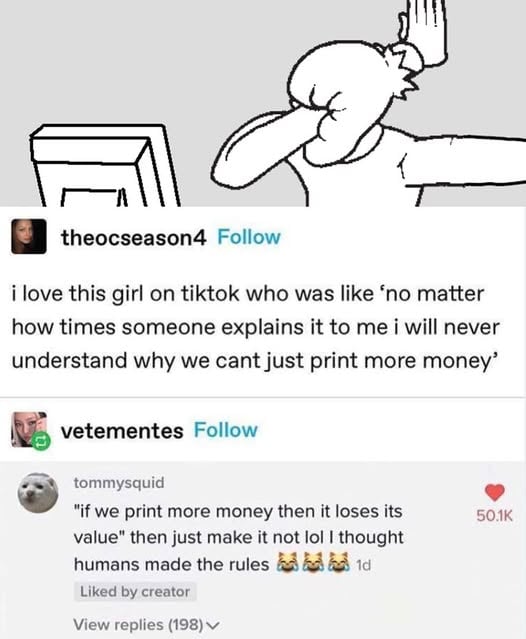I do sometimes wonder if you could technically still run a working government off printing money, just recognizing that doing so didnt create more value, but instead acted as a form of taxation. Imagine a government that currently holds no significant fraction of its currency. It then prints an amount equal to what is currently in circulation, doubling the money supply and in doing so presumably halving the value of a given unit of that currency. Once it has done so, no new value is created, but that government has gone from having no significant fraction of the money in circulation, to having half of it, which it can now spend.
Suppose you did this predictably, you let everyone know that you will be increasing the money supply by x percent every year, and will be re-denominating it to avoid difficult to work with numbers at set intervals. Wouldnt you technically have a functioning system for extracting value from the economy to pay for government functions?
It might not be a very good system, since all it would effectively tax is people's savings of currency and not stuff like property, and you would have to set up things like employment contracts or debts to compensate for constant high inflation rates, but Im not sure I see a reason why it technically couldn't be done.
